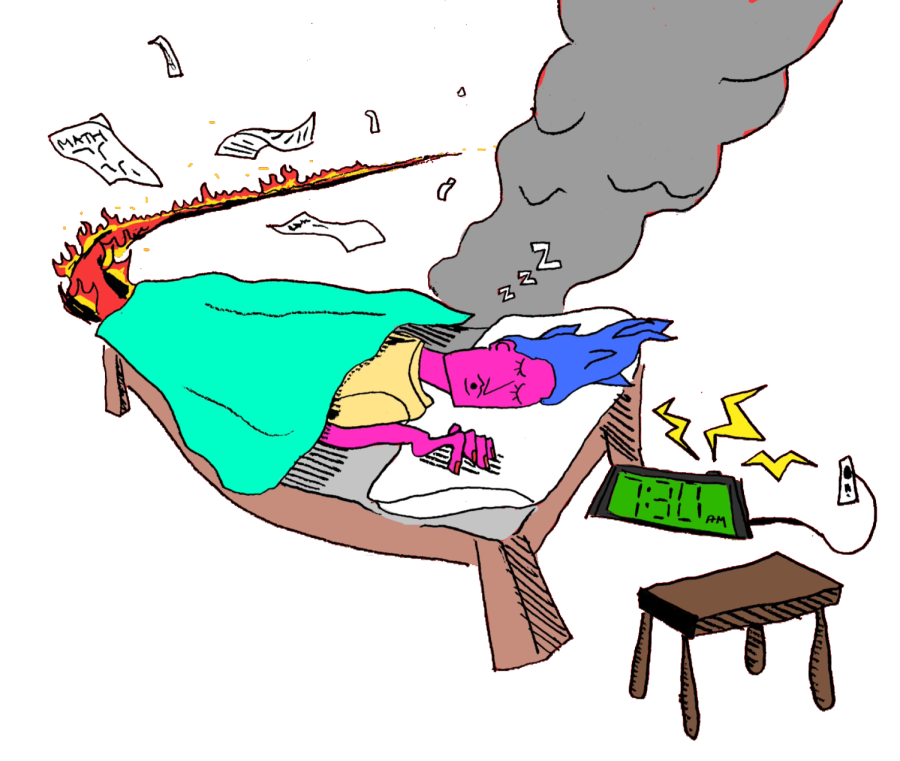Student burnout remains a prevalent issue
Burnout remains a prominent issue at Cherry Hill East.
“It’s difficult to deal with the disappointment I have for myself because I feel like I can do better.”
“People tend to flaunt the fact that they have multiple honors classes…To feel like I was smart and fit in, I took almost all honors classes too.”
“If you’re in high [level] classes and get no sleep you’re praised. If you get no sleep [because of] stress and have bad grades you are ‘lazy.’”
A recent Eastside survey with 224 responses from the Cherry Hill High School East student body revealed that there is a deeply ingrained culture in the student population of academic burnout.
Academic burnout is described as a state of mental, emotional, and physical exhaustion, caused by the stress of school which may eventually lead to a loss of motivation. Some of the side effects include exhaustion, feelings of anxiety, and increased stress levels, according to the National Library of Medicine.
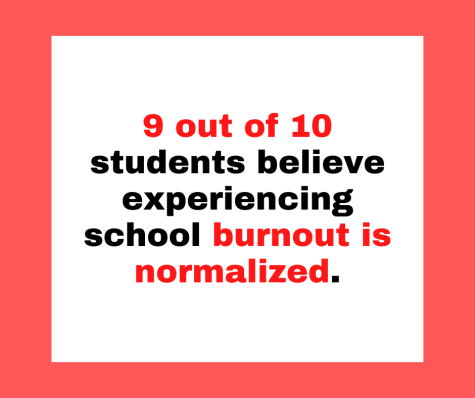
58.5%, a majority of student respondents, said that their workload was heavy and 19.2% said it is too heavy. Additionally, 46.9% of East students have three to four hours of homework on weekdays, which does not include extracurricular activities and other obligations outside of school.
“I just started having enough work to fill up my entire day and [felt] like I didn’t have enough time to do anything other than eating or sleeping,” said Harry Turner (‘23).
Students at East are also no stranger to sacrificing sleep to balance their extracurriculars and schoolwork after a busy day. On the average school night, a majority of East students do not sleep the recommended eight to ten hours for teenagers. In fact, 72.3% of students get between five to seven hours of sleep and 18.8% of students get between two and four hours of sleep on a typical school night.
However, it is important to raise the question of if this academic burnout stems solely from external factors. In a culture where elevated standards seem to contribute to students’ restless nights and exhaustion just as much as difficult coursework and curriculum, academic validation is internally prized among many high school students.
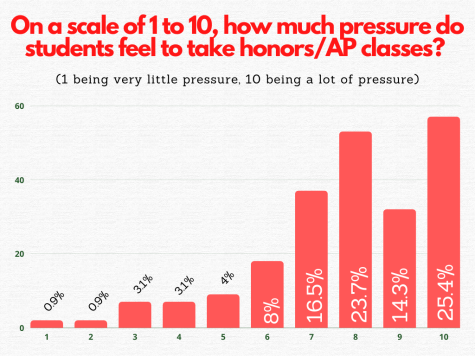
“I’ve overworked myself a lot because there is a lot of expectation that I put on myself to be the best I can possibly be…My parents instilled that in me, but…it kind of morphed into an unachievable standard for myself,” said Shivani Hirata-Chandran (‘23).
The stigmatization of R-level and A-level classes at East continues to reinforce the high expectations that students have for themselves.
“Taking [an] A level class is 100% definitely looked down upon,” said an anonymous sophomore, “I always feel embarrassed to say that I’m in Algebra 2A.”
This negative outlook that is sometimes perpetrated by students can unconsciously contribute to students taking on too many honors and AP classes.
“I want to take a bunch of AP classes next year, not for myself, but because everyone else around takes them,” said a sophomore.
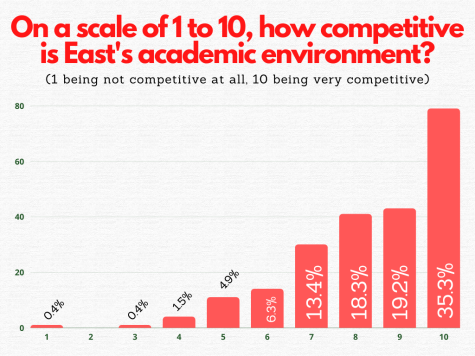
“Do what you know you’re good at and what you like,” said Jennifer DiStefano, East’s Student Assistance and Anti-Bullying Specialist. “Why would you sacrifice working so hard at something that you know will just cause frustration, if you [won’t reach] the success that you think you should have?”
The competitiveness of students may make it seem like more of an acceptable environment to take on extreme workloads.
“To feel like I was smart and fit in, I took almost all honors classes too which greatly [affected] my abilities to perform well in other classes especially after coming out of COVID,” said an anonymous student.
Often, when students take harder courses, it can lead to exhaustion and stress that extend beyond the classroom.
“The burnout in my life was something I didn’t even realize,” said Rowan Thompson (‘25). “This was how my life was lived… my whole school life.”
Switching classes in return for a lighter workload is also an option to directly deal with the stress and consuming nature of academics.
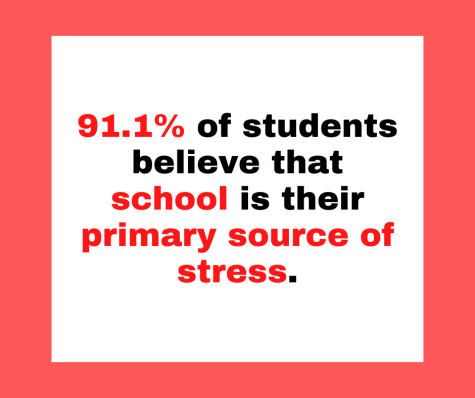
“The workload of all my classes at the beginning of the year was too much so I dropped APUSH 2. I could have chosen to put in the extra hours of homework and sacrifice my free time but I did not want to. I want to put more energy into tennis and recreation than school,” said Zachary Van Meter (‘23).
The startling reality is that 87.9% of students feel that experiencing burnout is normalized, and this culture may not be able to be changed quickly.
“I’m just super tired. After four years of trying my best [in high school]…it’s just hard to maintain it. Once college applications ended, I didn’t know how to go back to my normal mindset,” said Hope Xu (‘22).
Integrating smart study habits and reducing procrastination can help with managing stress from workloads. However, the internal and external pressures to excel have less definite solutions in terms of handling burnout.
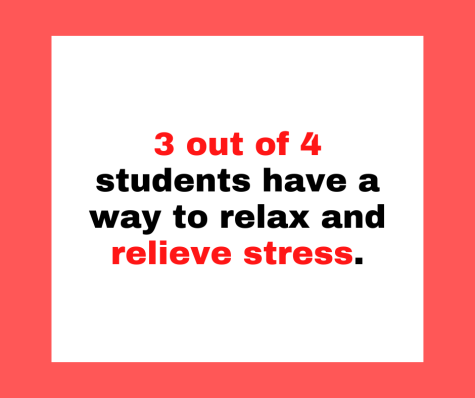
Most importantly, when dealing with academic burnout, it is vital for students to find ways to recharge. Three out of four students at East said they have a way to relieve stress. Making time for outside pursuits and finding a support network, including trusted teachers and the guidance department at East, can also help reduce the impact of academic burnout.
DiStefano encourages students to take time to care for themselves and their physical and mental health.
“We want [you to create] healthy habits so you can be mentally healthy,” said DiStefano, “If you’re on top of your game being healthy, mind and body, then that burnout part and [lack of] motivation part will lessen.”


